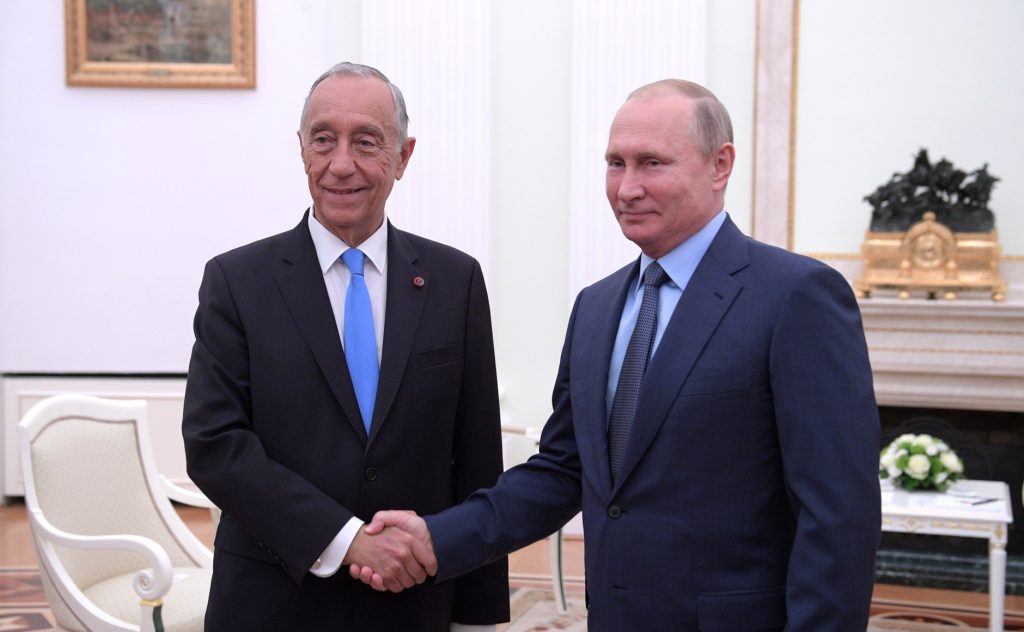Marcelo Rebelo de Sousa becomes the first Portuguese leader to propose an apology for Portugal’s significant involvement in the transatlantic slave trade.
Portugal’s President Marcelo Rebelo de Sousa has stated that his country should take responsibility and apologize for its significant role in the transatlantic slave trade, marking the first time a Portuguese leader has proposed a national apology. During the 15th to the 19th century, Portuguese vessels forcibly transported 6 million Africans across the Atlantic and sold them into slavery, primarily in Brazil to work on plantations.
However, Portugal has largely avoided discussing its past and its role in slavery is not extensively taught in schools. Instead, the country’s colonial era, which included the subjugation of countries such as Angola, Mozambique, Brazil, Cape Verde, East Timor, and parts of India, is often viewed with pride by many Portuguese.
Speaking at Portugal’s annual commemoration of the 1974 “Carnation” revolution, which brought down the dictatorial Estado Novo system, Rebelo de Sousa emphasized that an apology alone would not suffice. He urged Portugal to go beyond words and “assume responsibility” for its past in order to build a better future, though he did not provide specific details.
Paula Cardoso, the founder of Afrolink, an online platform for Black professionals in Portugal, described Rebelo de Sousa’s remarks as “symbolic” but significant as they raised awareness of the issue.
“However, I would have appreciated hearing more concrete steps from the president,” Cardoso told Reuters. “In order to make a real impact, these reflections need to be accompanied by tangible measures and commitments.”
Cardoso emphasized that reparations and public policies to address the inequalities caused by Portugal’s past were crucial.

Rebelo de Sousa’s remarks came after Brazilian President Luiz Inacio Lula da Silva addressed the Portuguese parliament during his visit to Portugal, where he highlighted the negative impacts of colonization on Brazil, including the exploitation of Indigenous people and slavery.
In his speech, the President of Portugal also expressed condemnation towards those who are indifferent to the plight of immigrants.
Earlier, during the session welcoming the President of Brazil, only the parliamentary leader of the Liberal Initiative party was present, leaving the other seats empty. Meanwhile, Chega MPs held up placards against Lula da Silva and banged on the bench with their hands whenever his speech was applauded.
Rebelo de Sousa, who had previously criticized right-wing parties for opposing Lula da Silva’s upcoming speech in March, reiterated that it made perfect sense to associate this date with the President of Brazil.
He emphasized that Brazil represents the first decolonization by Portugal in 1822 and that April 25th, which marks the Carnation Revolution, began to exist because of decolonization. Therefore, the meeting of the two presidents today had a significant meaning, as Lula da Silva is not only the President of the Federative Republic of Brazil but also the symbolic representative of a sister country, elected by the Brazilian people.
During the commemorative session, Rebelo de Sousa also condemned Portuguese people who show selfishness towards immigrants, despite their contributions to Portugal by building the country, paying into Social Security, and creating wealth.
This statement by the President received applause from all parties except Chega, with left-wing and PSD MPs giving a standing ovation.
Rebelo de Sousa pointed out that Portugal is home to “hundreds of thousands of brothers” from Portuguese-speaking countries who live in Portugal and have made tireless contributions to the country.
He further highlighted that Portugal’s national vision is not limited to economic growth, creating equality, reducing poverty, or addressing social and territorial cohesion. It is also about being a platform between oceans, continents, cultures, and peoples.
He questioned how a country of emigrants, who should be more understanding of the struggles of their own emigrants, could be selfish when faced with the plight of immigrants from other countries, receiving applause for his statement.
The move by Rebelo de Sousa was praised by Brazil’s human rights minister, Silvio Almeida, who called it an “extremely important” step towards addressing the legacy of slavery and moving towards a more equal society. The Council of Europe’s commissioner for human rights had also urged Portugal in 2021 to confront its colonial past and role in the transatlantic slave trade as a way to combat racism and discrimination in the present.
Currently, little is taught in Portugal’s schools about the country’s central role in the slave trade, despite establishing sugar plantations in Brazil using enslaved people from Africa since the 16th century. The transatlantic slave trade was a lucrative enterprise involving various European powers, including Portugal, Britain, the Netherlands, France, and Spain.
While some viewed Rebelo de Sousa’s remarks as symbolic and an important step in acknowledging the issue, others called for concrete measures and commitments, including reparations and public policies to address the inequalities caused by Portugal’s past.
SOURCE: AL JAZEERA AND NEWS AGENCIES


